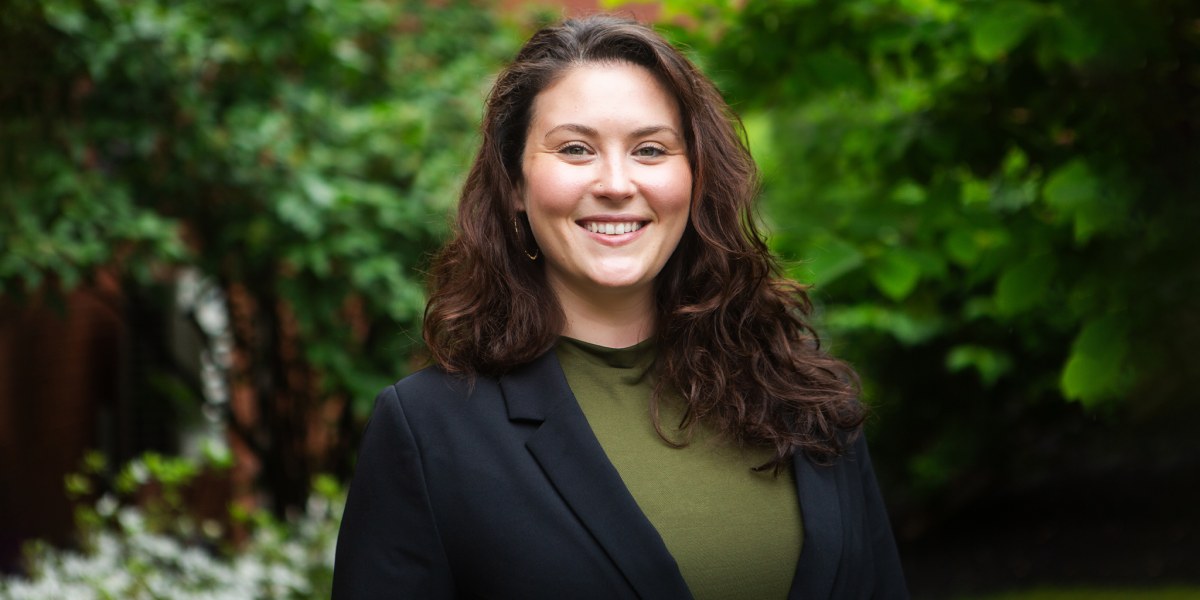A profile of MIM alum Lauren Schirle

Lauren Schirle, MIM '19
Growing up in Portland, Oregon, Lauren Schirle defied easy categorization. While her academic leanings pointed toward history and archival work, her extracurricular life revealed dynamism: competitive snowboarding, TaeKwonDo, honors choir, and impactful activism. Her volunteer work with the Cascade AIDS Project proved foundational, teaching her to translate complex information into accessible formats:
“I ended up being a peer educator, teaching sexuality education and HIV 101 courses at other high schools. That dovetailed into health and wellness interests that followed me into grad school.”
This blend of analytical rigor and human-centered communication foreshadowed her career in information architecture. In 2019, her pivot from the Master in Library and Information Science (MLIS) program to the Master of Information Management (MIM) program at the University of Maryland College of Information was driven by a realization: Technical fluency unlocks impact. As she notes, the MIM program’s emphasis on database design and project management equipped her with skills archival studies alone couldn’t provide.
Today, as Senior Manager of Strategic Initiatives at VIRIDIS Fund Solutions (a promotion from her initial role as Investor Portal Manager), Schirle bridges technical and operational realms. Her team manages investor portals and data pipelines, but her philosophy centers on human interaction: “Every click is a question. When people interact with data, they’re not just searching for numbers; they’re searching for answers.”
This philosophy proved transformative at her previous role at OK Capsule, where she designed Salesforce solutions for FDA-regulated supplement tracking: “I worked with our head of quality to transition someone who’d been in the industry for 40 years from paper binders to a digital audit trail. Seeing his eyes light up when he realized he could automate approvals was incredibly rewarding.”
Schirle credits the MIM curriculum with transforming her career trajectory. Courses like database design forced her into uncomfortable technical territory—a pivot that paid dividends: “Learning query languages and database structures allows me to visualize systems in my head. I can speak to how concepts connect even if I haven’t used a specific tool. That opens doors.”
Schirle urges students to do the following:
- Seek discomfort: “Raise your hand for research projects.”
- Master translation: “Learn to talk to both technical teams and business stakeholders. Requirements are rarely straightforward.”
- Prioritize flexibility: “The MIM teaches building blocks, but real-world solutions demand pivots.”
In addition to her work, Schirle advocates for information literacy in podcasts like Altvia’s “Preferred Return,” where she talks about how clean, well-structured data tells stories that drive business and historical understanding alike.